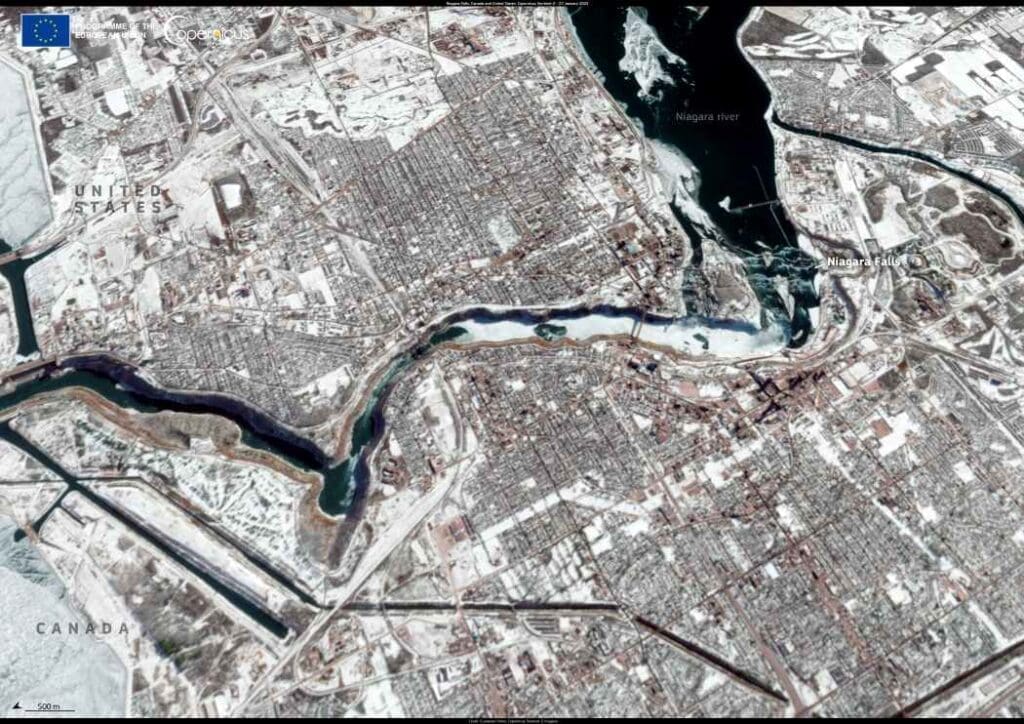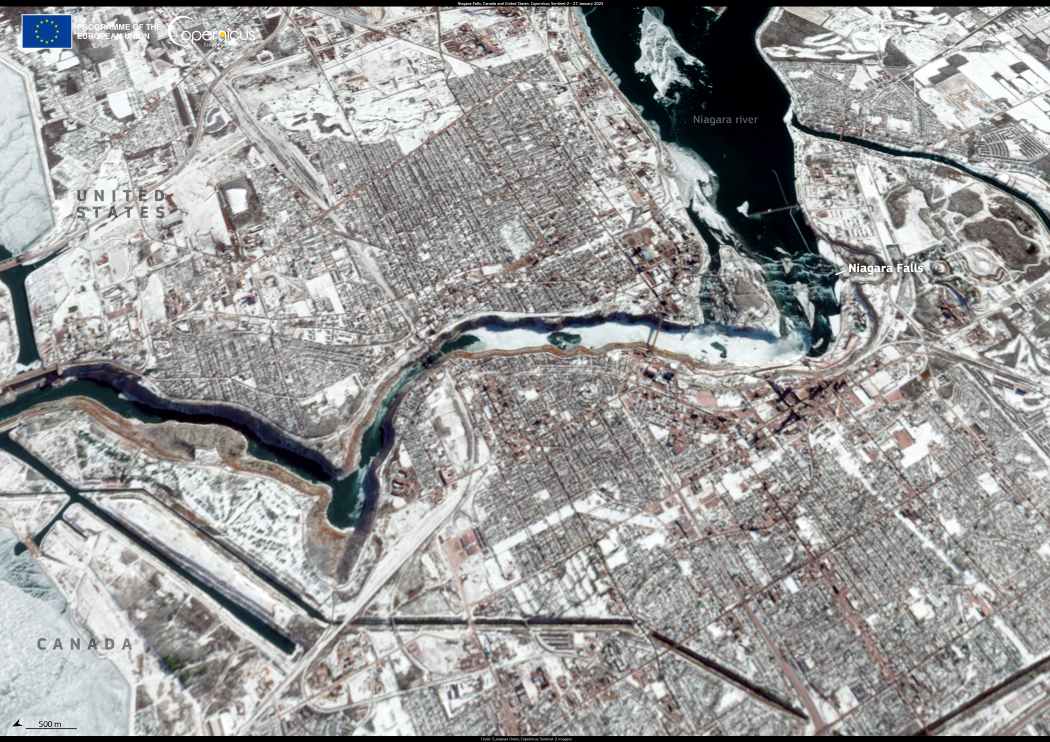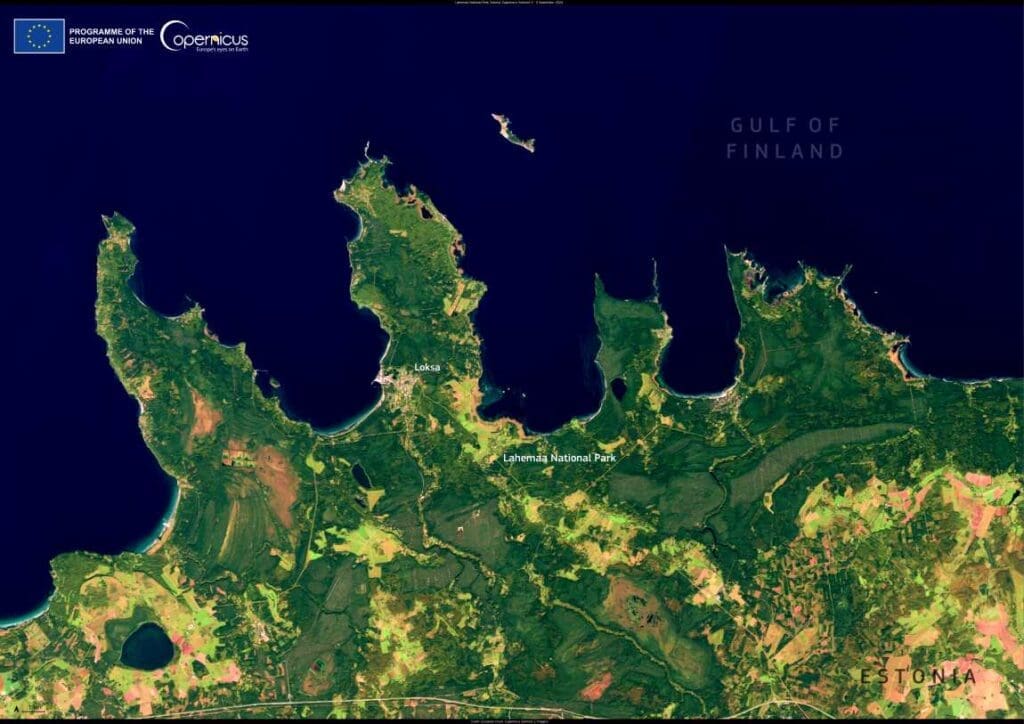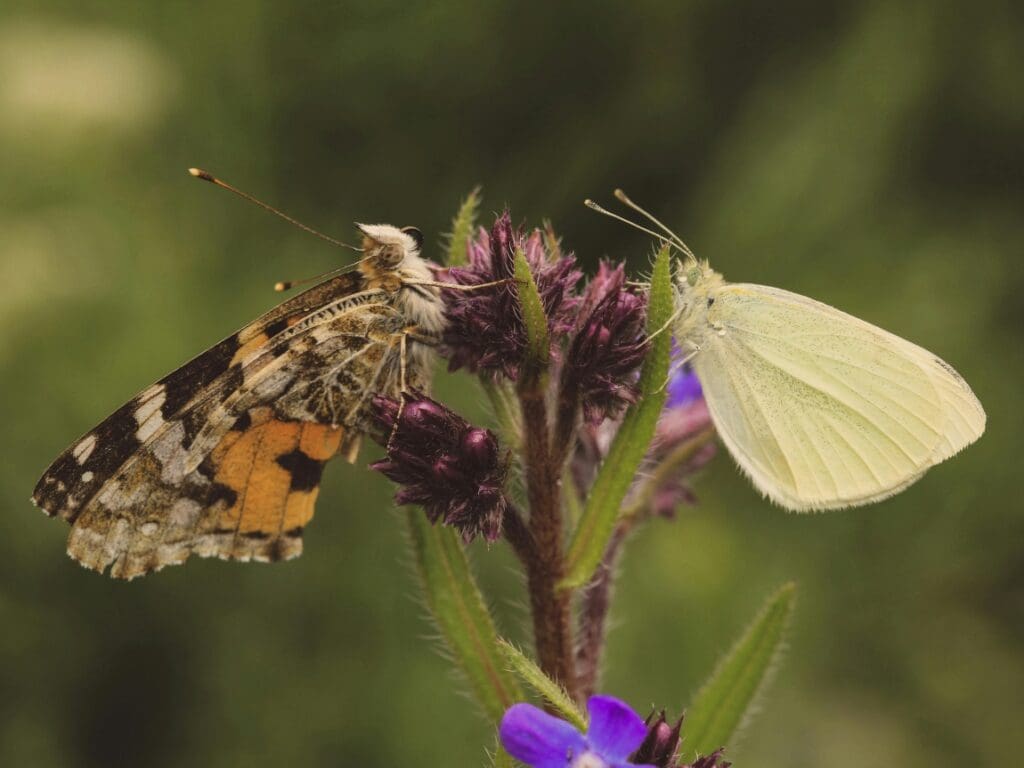A striking Copernicus Sentinel-2 image taken on 27 January 2025 captures the partially frozen Niagara Falls after an Arctic air mass swept through the region. Located on the Canada-U.S. border, the falls experienced extreme cold following the arrival of frigid air on 20 January, with temperatures plunging as low as -20°C in some areas.

While the falls did not freeze entirely due to the constant rush of water, large sections of the landscape were encased in ice. Frozen mist, ice bridges, and frost-covered trees transformed the area into a dazzling winter spectacle, drawing crowds of visitors eager to witness the rare phenomenon.
Sentinel satellites provide crucial data for monitoring snow and ice cover worldwide, helping authorities and communities make informed decisions based on environmental conditions.
Featured image credit: European Union, Copernicus Sentinel-2 imagery




